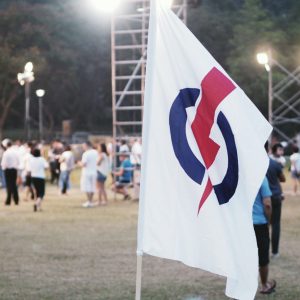Is the People’s Action Party Here to Stay: Analysing the Resilience of the One-Party Dominant State in Singapore
April 11, 2022

Singapore’s first General Election as an independent nation was held on 13 April 1968. Out of fifty-eight seats, only two seats contested by the Worker’s Party, and another five seats contested by independents. This resulted in a walkover election won by the People’s Action Party (PAP) on nomination day. Since then, the PAP have established a monopoly in Singapore with walkovers a persistent feature in each successive General Election. It was only from 2015 onwards that all seats were contested by the opposition.
Singapore’s General Elections 2020 marked a shift towards strong opposition parties. Although the PAP won a strong mandate, historical developments suggest why a noticeable shift was experienced. Associate Professor Bilveer Singh (NUS Political Science) reviews the broad political changes that may have affected the PAP’s GE2020 results in ‘New Issues and Developments in Singapore as the Pre-Dominant PAP Prepares for the Forthcoming General Elections’, a chapter in ‘Is the People’s Action Party Here to Stay?’ (World Scientific, 2019).
Unity was a dominant rhetoric emphasised by Deputy Prime Minister Heng Swee Kiat. His ability to unite the fourth generation of PAP members and his ‘amicable character’ reflected well of the prospective prime minister. Heng also posits unity and responsibility would align Members of Parliament to a common goal, and lead to a corruption-free government.
Although the PAP has adopted a more conservative ‘consultative approach’, they have continued to use fear to win votes. Most notably is their accusation that the Aljunied-Hougang Town Council (managed by the Workers’ Party) failed to efficiently use public funds. This has drawn criticism from Dr Tan Cheng Bock (Party Chief, Singapore Democratic Party), Lim Tean (Party Chief, People’s Voice Party) and Yee Jenn Jong (former Workers’ Party NCMP) who contested against the use of fear to reign in dissent and strengthen support for their mandate. These public figures also conveyed public sentiments that the PAP was losing touch with the ground.
A/P Singh also noted the public’s diminishing trust in the PAP’s leadership. From 2016 to 2019, multiple data breaches experienced by the Ministry of Health questioned the efficacy of the government’s cybersecurity. Hyflux, a private corporation under the Public-Private Partnership model, also faced controversy when its failing business was expected to experience heavy investment losses. The family feud over the personal residence of Singapore’s founding father, Lee Kuan Yew, may also have contributed to the loss of faith. A/P Singh suggests such ‘public service failures’ may undermine the PAP’s credibility.
Despite the Opposition’s criticism, A/P Singh suggests that they will need to establish themselves amongst Singaporeans. The Opposition’s generally poor performance have convinced the public to return to the security as evident from the PAP’s track record. A successful campaign against the dominant incumbent will thus require the Opposition to convince the public with strong alternatives.
Read the chapter here.
